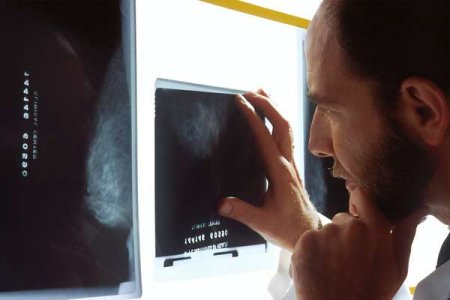The sneaky signs of cancer most men miss—Would you recognize them before it’s too late?
- Replies 0
At The GrayVine, we know that health headlines can be overwhelming—especially when they hit close to home.
This week, the news that beloved comedian Milton Jones, age 60, is facing prostate cancer has sent ripples through fans and families alike.
His announcement, and the recent revelation from Olympic legend Sir Chris Hoy about his own advanced diagnosis at just 48, are sobering reminders: prostate cancer isn’t just an “old man’s disease,” and its early signs are often so subtle, they’re easy to miss.
But here’s the good news: knowledge is power. The earlier prostate cancer is caught, the better the odds for successful treatment and a long, healthy life.
So let’s break down what every man—and everyone who loves a man—needs to know about this common but often silent threat.
Why Prostate Cancer Deserves Your Attention—No Matter Your Age
Prostate cancer is the most common cancer among men in the US, with 313,780 new cases of prostate cancer expected to be diagnosed in 2025.
While it’s true that most cases occur in men over 70, rates among men under 55 have risen dramatically since the 1990s.
The reasons aren’t fully understood, but better awareness and improved testing play a role.
Genetics and ethnicity matter, too: Black men are at double the risk, and having a close relative with prostate cancer quadruples your odds.

The Subtle Symptoms Most Men Overlook
The prostate is a small gland, about the size of a walnut, sitting just below the bladder. Its job is to help produce semen, but when things go wrong, it can quietly disrupt your daily life.
The tricky part? Early prostate cancer often causes no symptoms at all. When symptoms do appear, they’re easy to dismiss as “just getting older” or “drinking too much coffee.”
Here are the warning signs you should never ignore:
Remember: These symptoms don’t always mean cancer. Benign prostate enlargement (BPH) and infections are much more common causes.
But if you notice any of these changes, it’s time to talk to your doctor.
When Prostate Cancer Spreads: The Signs Get Harder to Ignore
Advanced prostate cancer can spread to bones and other organs. At this stage, symptoms might include:
Source: Prostate Cancer Foundation / Youtube.
Sir Chris Hoy’s story is a powerful example: he first sought help for shoulder pain, only to discover it was caused by cancer that had spread from his prostate.
That’s why it’s so important to pay attention to your body and speak up if something feels off.
Who’s Most at Risk?
- Age: Risk rises sharply after 50, but younger men aren’t immune.
- Family history: A father or brother with prostate cancer increases your risk.
- Ethnicity: Black men face a higher risk and tend to develop more aggressive cancers.
- Lifestyle: While the link isn’t as strong as with some other cancers, obesity, lack of exercise, and certain infections may play a role.
Also read: This man's terminal diagnosis was reversed by "sci-fi" cancer treatment—see how he beat the odds
The PSA Test: What You Need to Know
The PSA (prostate-specific antigen) blood test is the main screening tool for prostate cancer. It’s not perfect—many things can raise PSA levels, including benign conditions and even recent exercise or sexual activity.
But it’s a valuable starting point, especially when combined with a doctor’s exam and your personal risk factors.
In the US, The American Cancer Society recommends discussing PSA screening with your doctor at age 50 for average-risk men, 45 for higher-risk men (including Black men and those with a family history), and 40 for men at even higher risk.
A high PSA doesn’t mean you have cancer. Your doctor may recommend repeating the test, doing a digital rectal exam, or referring you to a urologist for further tests, such as an MRI or biopsy. The key is not to panic—but not to ignore it, either.
Source: Stanford Center for Health Education / Youtube.
If caught early, prostate cancer is highly treatable. Options include:
- Active surveillance: For slow-growing cancers, regular monitoring may be all that’s needed.
- Surgery or radiation: To remove or destroy the cancer.
- Hormone therapy, chemotherapy, or newer targeted treatments: For more advanced cases.
The outlook is excellent for early-stage prostate cancer: over 90% of men survive at least five years, and many live much longer.
For advanced cancer, treatments can still help control the disease and improve quality of life.
Read next: This 20-minute test could save your life: a breakthrough in prostate cancer detection!

Have you or someone you love faced prostate cancer? Share your story or your questions in the comments below!
This week, the news that beloved comedian Milton Jones, age 60, is facing prostate cancer has sent ripples through fans and families alike.
His announcement, and the recent revelation from Olympic legend Sir Chris Hoy about his own advanced diagnosis at just 48, are sobering reminders: prostate cancer isn’t just an “old man’s disease,” and its early signs are often so subtle, they’re easy to miss.
But here’s the good news: knowledge is power. The earlier prostate cancer is caught, the better the odds for successful treatment and a long, healthy life.
So let’s break down what every man—and everyone who loves a man—needs to know about this common but often silent threat.
Why Prostate Cancer Deserves Your Attention—No Matter Your Age
Prostate cancer is the most common cancer among men in the US, with 313,780 new cases of prostate cancer expected to be diagnosed in 2025.
While it’s true that most cases occur in men over 70, rates among men under 55 have risen dramatically since the 1990s.
The reasons aren’t fully understood, but better awareness and improved testing play a role.
Genetics and ethnicity matter, too: Black men are at double the risk, and having a close relative with prostate cancer quadruples your odds.

Popular comedian Milton Jones has revealed he has been diagnosed with prostate cancer at the age of 60, after being forced to cancel tour dates for surgery and recovery. Image source: National Cancer Institute / Unsplash.
The Subtle Symptoms Most Men Overlook
The prostate is a small gland, about the size of a walnut, sitting just below the bladder. Its job is to help produce semen, but when things go wrong, it can quietly disrupt your daily life.
The tricky part? Early prostate cancer often causes no symptoms at all. When symptoms do appear, they’re easy to dismiss as “just getting older” or “drinking too much coffee.”
Here are the warning signs you should never ignore:
- Changes in urination: Needing to pee more often, especially at night, or feeling a sudden, urgent need to go.
- Difficulty starting or stopping urination: Hesitancy, straining, or a weak stream.
- Feeling like your bladder isn’t empty: Even after you’ve just gone.
- Blood in urine or semen: This is rare, but always a red flag.
- Pain or burning during urination or ejaculation.
- Erectile dysfunction: Sometimes, prostate issues can affect sexual function.
Remember: These symptoms don’t always mean cancer. Benign prostate enlargement (BPH) and infections are much more common causes.
But if you notice any of these changes, it’s time to talk to your doctor.
When Prostate Cancer Spreads: The Signs Get Harder to Ignore
Advanced prostate cancer can spread to bones and other organs. At this stage, symptoms might include:
- Persistent bone, back, or hip pain
- Unexplained weight loss
- Fatigue
- Loss of appetite
- Swelling or pain in the testicles
Source: Prostate Cancer Foundation / Youtube.
Sir Chris Hoy’s story is a powerful example: he first sought help for shoulder pain, only to discover it was caused by cancer that had spread from his prostate.
That’s why it’s so important to pay attention to your body and speak up if something feels off.
Who’s Most at Risk?
- Age: Risk rises sharply after 50, but younger men aren’t immune.
- Family history: A father or brother with prostate cancer increases your risk.
- Ethnicity: Black men face a higher risk and tend to develop more aggressive cancers.
- Lifestyle: While the link isn’t as strong as with some other cancers, obesity, lack of exercise, and certain infections may play a role.
Also read: This man's terminal diagnosis was reversed by "sci-fi" cancer treatment—see how he beat the odds
The PSA Test: What You Need to Know
The PSA (prostate-specific antigen) blood test is the main screening tool for prostate cancer. It’s not perfect—many things can raise PSA levels, including benign conditions and even recent exercise or sexual activity.
But it’s a valuable starting point, especially when combined with a doctor’s exam and your personal risk factors.
In the US, The American Cancer Society recommends discussing PSA screening with your doctor at age 50 for average-risk men, 45 for higher-risk men (including Black men and those with a family history), and 40 for men at even higher risk.
A high PSA doesn’t mean you have cancer. Your doctor may recommend repeating the test, doing a digital rectal exam, or referring you to a urologist for further tests, such as an MRI or biopsy. The key is not to panic—but not to ignore it, either.
Source: Stanford Center for Health Education / Youtube.
If caught early, prostate cancer is highly treatable. Options include:
- Active surveillance: For slow-growing cancers, regular monitoring may be all that’s needed.
- Surgery or radiation: To remove or destroy the cancer.
- Hormone therapy, chemotherapy, or newer targeted treatments: For more advanced cases.
The outlook is excellent for early-stage prostate cancer: over 90% of men survive at least five years, and many live much longer.
For advanced cancer, treatments can still help control the disease and improve quality of life.
Read next: This 20-minute test could save your life: a breakthrough in prostate cancer detection!
Key Takeaways
- Popular comedian Milton Jones has revealed he has been diagnosed with prostate cancer at the age of 60, after being forced to cancel tour dates for surgery and recovery.
- There has been a significant rise in prostate cancer diagnoses among younger men, with causes still unclear; black men and those with family history are at higher risk.
- Early prostate cancer often causes subtle urinary symptoms, such as increased frequency, urgency, hesitancy, weak flow, and feeling of incomplete emptying; blood in urine or semen should be checked promptly.
- Experts recommend men discuss any urinary changes with their GP, and PSA tests are available for men over 50 (or younger if concerned); early detection improves outcomes but advanced cases, like British cyclist Sir Chris Hoy, can have a poorer prognosis.
Have you or someone you love faced prostate cancer? Share your story or your questions in the comments below!






